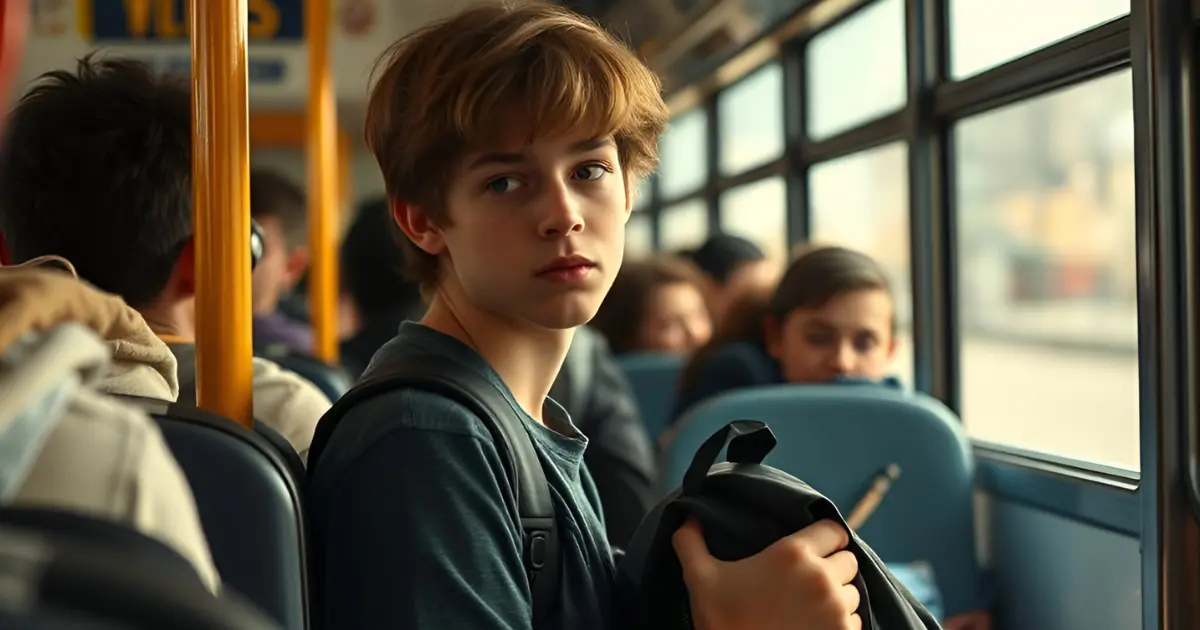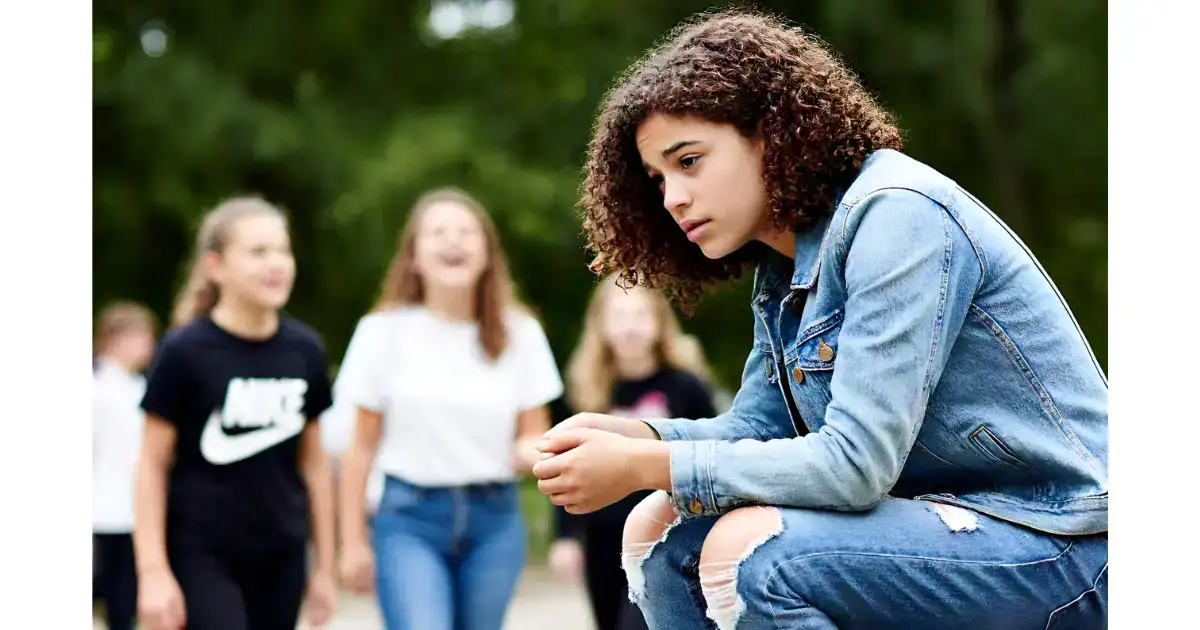
Introduction: Does My Child Have Social Anxiety Quiz
Hey there, fellow parents! Does my child have social anxiety? You’re not the only one who has been thinking about this question lately. It can be really hard for parents to tell if their child is just being shy or if they have a more serious problem, like social anxiety disorder.
There’s a truth that kids and teens have more social nervousness than you might think. The Anxiety and Depression Association of America (ADAA) says that 31.9% of teenagers have an anxiety condition, which can include social anxiety disorder. In fact, 9.1% of adolescents aged 13-18 are affected by social anxiety disorder, with higher rates in females (11.2%) than males (7%).
As Dr. Rachel E. Busman from the Child Mind Institute so aptly puts it, “Social anxiety can be debilitating for children and teenagers, making everyday situations feel like insurmountable challenges.” The question is, how can you tell if your kid has social anxiety? Check out our “Does my child have social anxiety quiz” to learn more!
What is Social Anxiety in Children?
Have you wondered what social anxiety is and how it differs from shyness? For kids, having social anxiety is more than just being shy; it’s a strong fear of being judged, ashamed, or rejected in public. A shy child might need a little time to get used to new things, but a child with a social anxiety disorder might avoid them altogether, even if it makes their daily life harder.
You may want to Read: Social Anxiety Caused By Childhood Trauma: Uncover The Truth Now!
While shyness usually goes away with time and practice, social anxiety symptoms in children can last and get worse if not treated. It may feel like climbing Mount Everest to do normal things like speaking up in class or joining a game during the break.
Another study in the Journal of Clinical Child & Adolescent Psychology says that 5.5% of children and adolescents have this problem. To help your child do well socially and mentally, you need to be able to tell the difference.
You may want to Read: Unlock Social Anxiety Caused by Parents: Parenting on High Alert
Signs and Symptoms of Social Anxiety in Children

Does the thought of raising their hand in class make your child sweat? Does the idea of attending birthday parties make them feel anxious? Some individuals label these as signs of social anxiety in kids. There are a lot of different ways that social anxiety can show up, which can make it difficult to spot.
As a result, an anxious teen or child might avoid people, cling to people they know, or freeze up in groups. They may exhibit reluctance to engage in activities, avoid making eye contact, or display signs of fear of judgment or shame.
You may want to Read: Teen Depression and Social Media: The Growing Concern and Impact
The signs are just as telling when it comes to the body. Before or during social events, look for signs like shaking, sweating, feeling sick, or even headaches. These are ways that the body shows that it is scared or upset.
Findings show that kids with social anxiety disorder are more likely to suffer depression, substance abuse, and educational underachievement.” This shows how important it is to notice and deal with these signs right away.
Understanding these behavioral patterns of anxious teens is the first step towards improving their self-esteem and facilitating easier friendships. Remember that your child can get through these problems with the right help!
You may want to Read: 12 Powerful Impulse Control Activities for Teens: A Calmer Life
Does My Child Have Social Anxiety? Ask 30 Questions!

Don’t know for sure if your child has social anxiety, but I think they might. We designed this “Does My Child Have Social Anxiety Quiz” to assist you in identifying potential signs of social anxiety in your child. It’s not about giving your child a label; it’s about knowing their problems and helping them find help.
You may want to read: My Teenage Son Has No Social Life: Reverse Teen Isolation Now
How to Take the Quiz:
- Carefully read each question and think about how your child has behaved in the last six months.
- Be honest—there are no right or wrong answers here.
- The answers can help you decide what to do next, such as talking to a teacher, counselor, or mental health professional.
“This quiz is not a diagnostic tool, but rather a guide to help parents identify potential signs of social anxiety in their children.” – Dr. Laura Markham, Aha! Parenting
You may want to Read: Spiritual Advice to a Teenager: Empower Your Teen’s Spirit
Remember that this quiz is only meant to give you information, not to replace professional help. If your child gets a high score, it means they are having problems, and you might want to get help for them. Are you ready? Allow us to begin!
Check out this quiz to see if your child might be showing signs of social anxiety in kids. Based on what you’ve seen over the last six months, answer each question with “Yes” or “No.”
Behavioral Signs
- Does your child avoid speaking in class, even if they know the answer?
- Are they hesitant to participate in social activities such as birthday celebrations or team sports?
- Is your child clinging to you or another trusted adult in new social situations?
- Do they seem overly worried about criticism or embarrassment?
- Is your youngster avoiding eye contact during conversations?
- Do they seem uncomfortable or refuse to meet new people?
- Have they suddenly lost interest in activities they previously enjoyed?
- Do they utilize excuses (such as being sick) to avoid social events?
- Has your child avoided seeking help from teachers or others at school?
- Do they fear being the focus of attention, even in a favorable situation?
You may want to Read: How To Help A Teenager Regulate Their Emotions: 8 Simple Steps
Physical Symptoms
- Is your child complaining about stomachaches or headaches before social events?
- Do they tremble or sweat when they’re in unexpected surroundings?
- Have you observed a sudden shift in their appetite or sleeping patterns?
- Do they seem fidgety or restless in group settings?
- Does your youngster blush during social interactions?
- Have they reported feeling nauseous or dizzy when among new people?
- Do they tend to avoid eye contact or look down during conversations?
- Have you observed how they speak in a faint or unsteady voice around others?
- Do they appear uptight or withdrawn during group activities?
- Have they ever felt short of breath or a racing heart before a public speech?
You may want to Read: 8 Subtle Signs Of An Insecure Teenager: Parents Watch Out
Emotional and Cognitive Patterns
- Does your child constantly worry about receiving judgment or criticism?
- Have they used negative self-talk, like calling themselves “awkward” or “weird”?
- Are they afraid of being rejected or despised by others?
- Does your youngster struggle to form and retain friendships?
- Have they demonstrated a great unwillingness to try new things out of fear of failure?
- Do they avoid asking questions or contributing to class discussions?
- Is your child overthinking their actions or words following social interactions?
- Have they indicated concern about performing poorly in public (e.g., performances, games)?
- Is your youngster overly preoccupied with their looks or how others see them?
- Have you observed them retreating from family events or outings?
You may want to Read: How To Live A Healthy Lifestyle As A Teenager: 10 Simple Hacks!
Interpreting the Results:
- 0-10 Yes: Your child may be shy but not necessarily experiencing social anxiety.
- 11-20 Yes: Signs of social anxiety are present; consider discussing concerns with a teacher or counselor.
- 21-30 Yes: Your child may be struggling with social anxiety disorder. Seeking professional help is highly recommended.
This quiz is intended to serve as a starting point rather than a diagnosis. If your results raise any concerns, contact a mental health professional for additional assessment and support.
You may want to read: My Teenage Son Shows No Emotion: Unlock Hidden Feelings
What Causes Social Anxiety in Children?

Have you ever wondered what causes social anxiety in children? Genetic, environmental, and social forces often work together to shape a child’s behavior in the world.
Genetic and Environmental Influences
Family members may also have social nervousness. Researchers have found that kids whose parents have anxiety issues are more likely to have the same problems as their parents. This might happen because of traits passed down from parents or lessons learned from watching worried people behave.
You may want to read: Long-Term Effects Of Losing A Parent As A Teenager: Hidden Scars
Parenting Styles and Family Dynamics
Overly vigilant or critical parents can increase their children’s fear of unintentional judgment from others. Similarly, strained family relationships, like frequent fights or insufficient mental support, can make children feel more insecure.
Social Media and Technology
Social media often makes it easier to compare yourself to others and fear judgment in this digital age. Kids and teens may feel bad about themselves or anxious in real life because of the push to look perfect online.
Stat: Studies indicate that children with anxious parents are substantially more likely to develop anxiety disorders themselves.
Knowing about these things can help parents make their kids’ environments more helpful and caring, which can lower their chances of developing social anxiety.
How to Help a Child with Social Anxiety
Are you struggling to figure out how to help a child with social anxiety? If you help, your child can overcome their fears and gain confidence.
Foster Open Communication
First, make sure your child has a safe place to talk about their fears. If you want to help someone, listen to them without judging and let them know it’s okay to feel worried sometimes. It can help a lot to say something like, “I’m here for you no matter what.”
Gradual Exposure to Social Situations
Encourage your child to confront their fears gradually. For instance, they can become accustomed to interacting with others by practicing how to greet friends or acting out common social situations.
Seek Professional Help
Research has shown that cognitive-behavioral therapy (CBT) and other therapies can help kids feel less anxious by teaching them how to change their negative thoughts and deal with difficult situations. A child psychologist or counselor can give your child specific advice that will help them.
Stat: Studies show that CBT is highly effective in treating social anxiety disorder in children and teens, improving outcomes in up to 75% of cases.
Remember that overcoming social nervousness takes time. With patience, help, and professional help, your child can learn to get along with others.
Conclusion
So, does my child have social anxiety quiz to spark clarity for you? It is very important to catch social nervousness in kids early on. You’re already making a difference in your child’s life by knowing the signs of social anxiety in kids, recognizing the things that might be making the problem worse, and taking steps to fix it.
We’ve talked about what social anxiety looks like, what causes it, and how you can help your child by understanding, exposing them slowly, and getting professional help. Don’t “fix” your child; give them the tools to face their problems with courage.
Do not be afraid to talk to a mental health worker if you think your child might be having a hard time. Getting help early can lead to a better, more confident future.
Quote: “Early intervention and support can make a significant difference in helping children overcome social anxiety and thrive.” – Dr. Kenneth Rubin, University of Maryland
It’s not easy being a parent, but you’re not alone. By loving, being patient, and equipping your child, you can help them succeed in any social setting. Could you not give up on them; you can do this.
Frequently Asked Questions (FAQs)
Q: What is the difference between shyness and social anxiety?
A: Being shy is a normal part of being human. Shy kids may feel awkward or quiet around other people. On the other hand, if you suffer from social anxiety, you experience intense fear, excessive worry about judgment, and struggle to interact with others in typical social settings.
Q: How can I help my child overcome social anxiety?
A: Understand and talk to people honestly to begin. Tell your child that you will not judge them if they tell you about their fears. Slowly getting used to social settings and practicing social skills can help. If you need it, get professional help, like therapy, especially Cognitive-Behavioral Therapy (CBT), which works really well for kids with social anxiety.
Q: What are the signs of social anxiety in children?
A: Watch for indicators such as shying away from social gatherings, experiencing fear of judgment, or finding it difficult to engage in group discussions. Before social events, there are also often physical signs, like stomachaches, headaches, or shaking.









